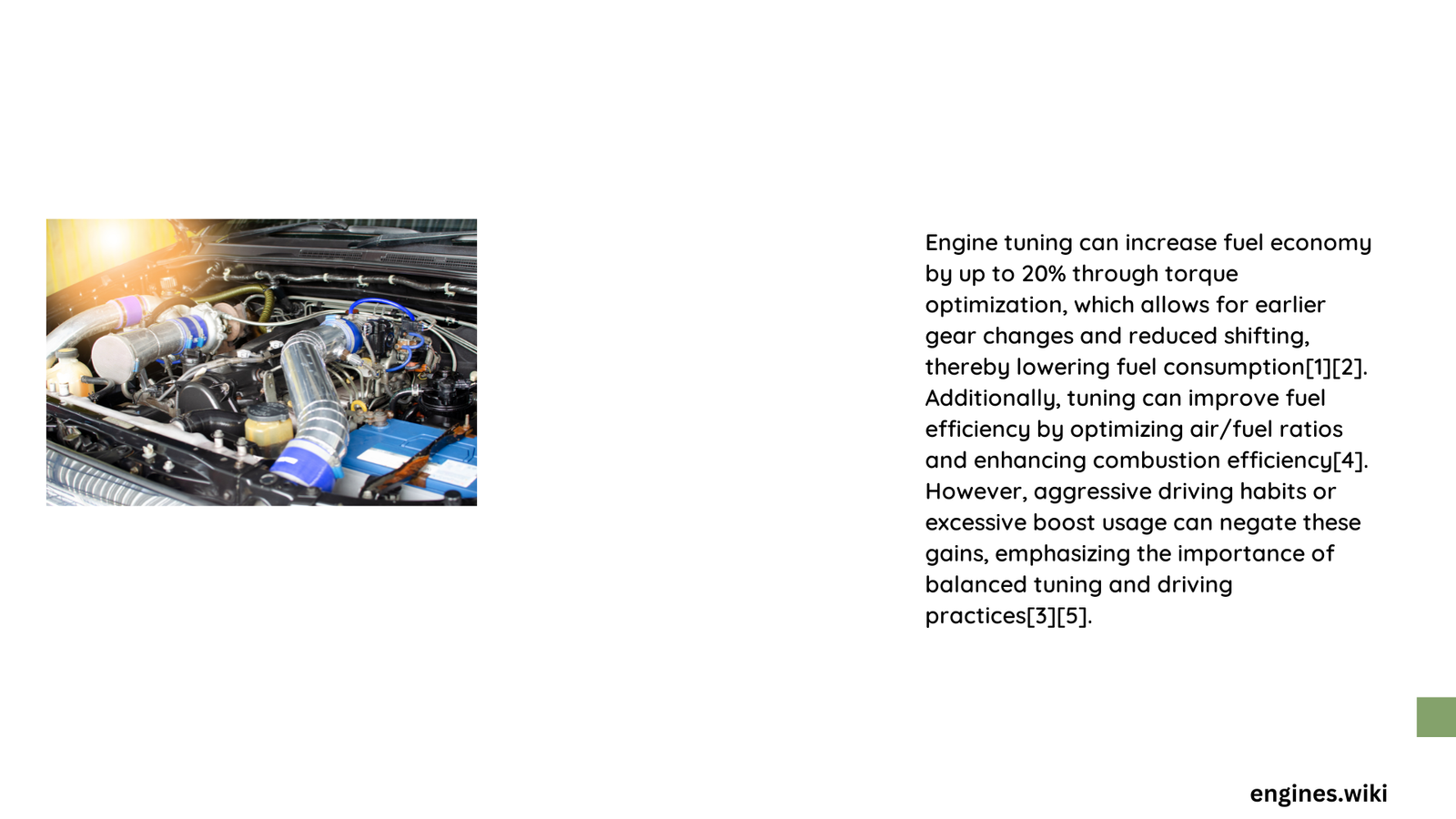Engine tuning represents a sophisticated approach to optimizing vehicle performance and fuel efficiency. By strategically adjusting engine parameters through advanced computational techniques, automotive enthusiasts and professionals can potentially unlock modest yet meaningful improvements in fuel consumption. This comprehensive exploration reveals the nuanced relationship between engine modifications and fuel economy, providing data-driven insights into the potential benefits and limitations of modern engine tuning strategies.
What Exactly Is Engine Tuning?
Engine tuning involves precise modifications to a vehicle’s electronic control unit (ECU) to optimize performance parameters. These adjustments can target multiple aspects of engine operation, including:
- Air-fuel mixture ratios
- Ignition timing
- Fuel injection strategies
- Throttle response characteristics
Can Engine Tuning Deliver Measurable Fuel Economy Improvements?

Quantitative Performance Gains
Research and real-world testing demonstrate that engine tuning can yield fuel economy improvements ranging from 5% to 10%. Key findings include:
| Tuning Method | Potential Fuel Economy Improvement |
|---|---|
| ECU Remapping | 5-7% |
| Air-Fuel Ratio Optimization | 3-5% |
| Spark Timing Adjustment | 2-4% |
Factors Influencing Fuel Economy Gains
Several critical factors determine the effectiveness of engine tuning:
- Vehicle Make and Model
- Modern vehicles with advanced engine management systems offer more precise tuning opportunities
-
Older vehicles might experience more significant improvements
-
Driving Conditions
- Highway driving tends to showcase better fuel economy gains
-
Urban stop-and-go traffic may limit potential improvements
-
Tuning Quality
- Professional, data-driven tuning yields more consistent results
- Amateur modifications can potentially reduce fuel efficiency
What Are the Potential Challenges?
Performance vs. Efficiency Trade-offs
While engine tuning can improve fuel economy, drivers must consider:
- Aggressive driving can negate efficiency gains
- Emissions compliance limitations
- Potential warranty implications
How Much Does Professional Engine Tuning Cost?
Professional engine tuning expenses vary based on:
- Vehicle complexity
- Desired performance outcomes
- Tuner expertise
Average Cost Range:
– Basic ECU Remapping: $300 – $800
– Advanced Performance Tuning: $800 – $2,500
Real-World Case Study
A documented test on an Isuzu D-Max revealed:
– Untuned vehicle: Approximately 15 liters per 100 kilometers
– Tuned vehicle: Reduced to 14 liters per 100 kilometers
– Efficiency improvement: Approximately 6-7%
Recommendations for Potential Tuners
- Choose certified, experienced automotive professionals
- Prioritize reputable tuning services
- Understand your specific vehicle’s characteristics
- Maintain realistic expectations about potential gains
Technical Considerations
Successful engine tuning requires understanding:
– Precise air-fuel mixture dynamics
– Ignition timing optimization
– Computational engine modeling techniques
Key Limitations to Consider
- Not all vehicles respond equally to tuning
- Gains can be marginal in some cases
- Potential risk of increased mechanical stress
Conclusion
Engine tuning offers a nuanced approach to potentially improving fuel economy. While gains are typically modest, strategic modifications can deliver meaningful efficiency improvements for informed vehicle owners.
Pro Tip: Always consult professional automotive technicians before implementing any engine modifications.
